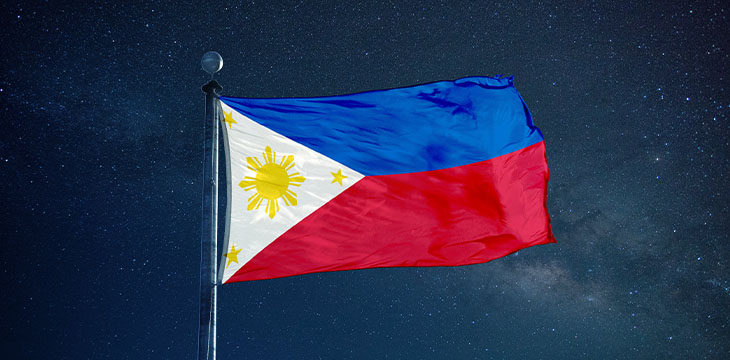
|
Getting your Trinity Audio player ready... |
Rallying for inclusion and digital empowerment, the Private Sector Advisory Council (PSAC), a committee made of key business leaders and experts from various sectors that was formed to revitalize the Philippine economy, kickstarted a campaign in January to bridge the gap that prevents the country from achieving its full potential.
Spearheaded by PSAC Digital Infrastructure Sector Lead Henry Aguda, the GoDigital Pilipinas (GDP) movement was launched on January 30 at the Philippine International Convention Center (PICC) to help promote digital literacy to Filipinos from different demographics.
“PSAC Digital Infrastructure is ready to support the nation’s development blueprint and digitalization agenda through the GoDigital Pilipinas (GDP) movement. Working together, the public and private sector will ensure that every Filipino has the tools and the skills to thrive in our revitalized society,” said Aguda during the National Economic and Development Authority’s (NEDA) “From Plan to Action: Philippine Development Plan 2023-2028” public forum in PICC as quoted by the Manila Bulletin in a report on Monday.
Industry players have long said that the Philippines’ major hurdle in digitalization is the lack of basic and good education, and while that rings true to most, PSAC said the country also needs to address its shortfalls when it comes to arming its workforce with the right skills to keep up with the rest of the world, which the GDP movement seeks to achieve, Aguda said.
Collaborating with the Technical Education and Skills Development Authority (TESDA) and the Inter-Agency Council on Philippine Digital Workforce, the GDP bares its plans to launch specialized training and mentoring to individuals from various age groups under its five-PACES initiative. Additionally, the campaign will cover Filipinos often overlooked by society, including physically challenged individuals and persons deprived of liberty.
Aguda said the GDP would also focus its efforts on helping entrepreneurs digitize and ensure that security and privacy will be upheld as the Philippines progresses with its digitalization.
Uniting toward a common goal
While the Philippines is confident it can realize its ambitions, it acknowledged that cross-border partnerships remain crucial in ensuring the success of its plans. With this, it has turned to its long-time partner, the Association of Southeast Asian Nations (ASEAN), for assistance.
Last Thursday, representatives from the 10-member bloc met in Boracay Island in Aklan Province for the 3rd ASEAN Digital Ministers’ Meeting and Related Meetings (ADGMIN), where they agreed that accelerating the region’s digital transformation would need intensified cooperation between member states.
The COVID-19 pandemic wreaked havoc in the region when it spread globally in early 2020, and three years since the start of the pandemic, countries in Southeast Asia are still reeling from its impact on the economy. The ASEAN member states believe that one way to rise from this is digital transformation, which they aim to fast-track through the ASEAN Comprehensive Recovery Framework.
Under the framework, member states will share best practices and strategies in digitalizing services across a wide array of sectors, including utilizing the latest technologies for pandemic mitigation and recovery efforts.
Furthermore, ASEAN countries vowed to continue collaborating on efforts focused on the development of analytics and artificial intelligence (AI), exploring the adoption of emerging technologies, and improving cybersecurity.
Becoming a blockchain hub is on the horizon.
Pushing forward with its digital transformation is among the active steps being taken by the Philippines to establish itself as a blockchain hub, designation countries worldwide are looking to get a hold of.
In 2022, the Philippines held its first-ever week-long blockchain week in a bid to rally businesses to adopt the nascent technology while at the same time educating members of the public on the benefits of utilizing this new tool as well as the apps and services associated with it. Global tech company nChain is among those that have thrown support to the Philippines’ goals and ambitions, actively engaging with government officials and key industry players.
nChain is working alongside government agencies, such as in the case of the Provincial Government of Bataan, in helping Filipinos realize that blockchain is not merely about digital currencies while supporting them in harnessing the true potential of the technology. Efforts like this are expected to drive blockchain adoption in the Philippines and aid with the government and PSAC’s plan to bridge the digital divide.
Watch: Turbocharging Philippines digitalization via blockchain
Recommended for you
Lorem ipsum odor amet, consectetuer adipiscing elit. Elit torquent maximus natoque viverra cursus maximus felis. Auctor commodo aliquet himenaeos fermentum
Lorem ipsum odor amet, consectetuer adipiscing elit. Accumsan mi at at semper libero pretium justo. Dictum parturient conubia turpis interdum

 11-22-2024
11-22-2024


